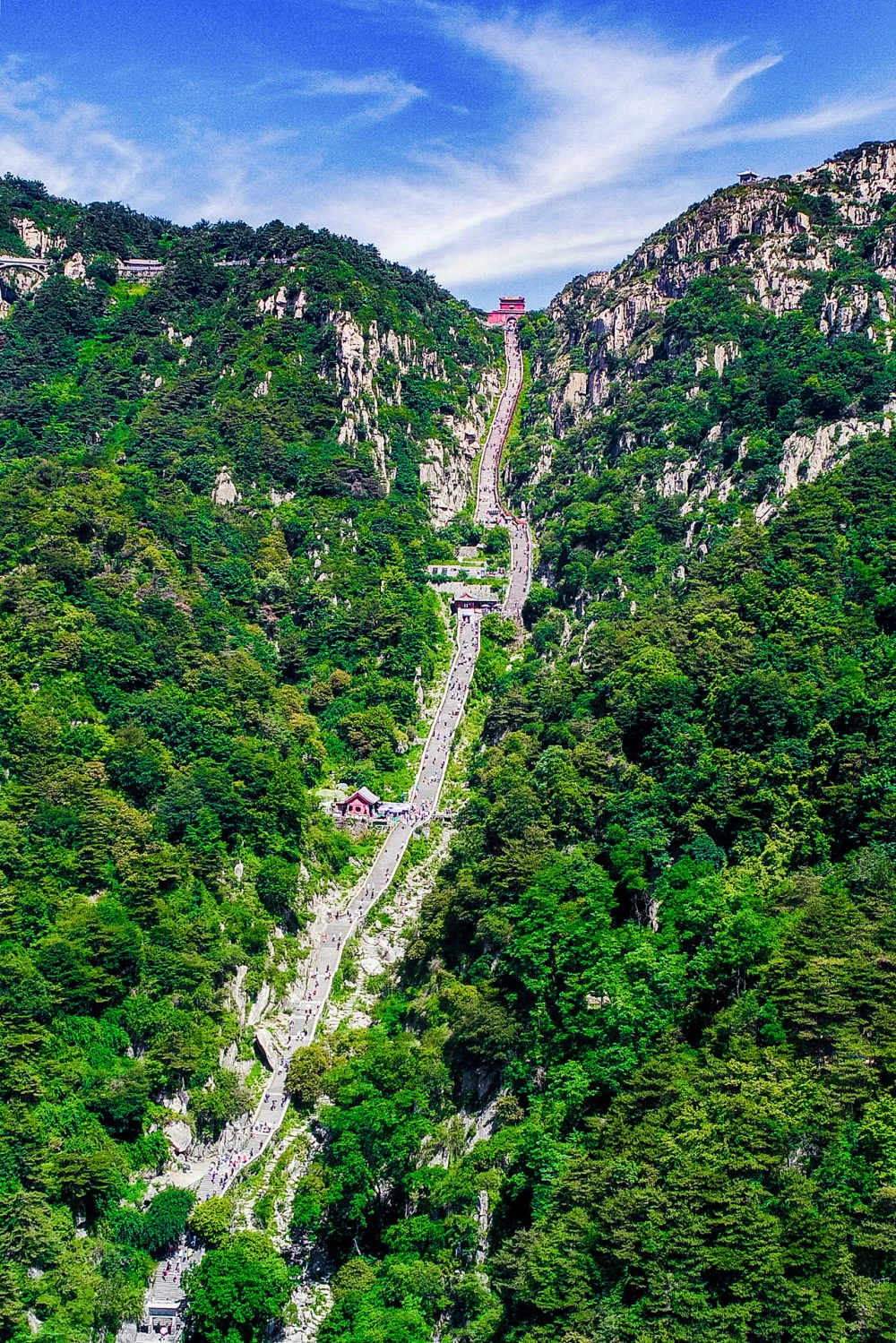Mount Tai Doesn’t Charge “Weaklings”: Trekking Poles and High-Peak Adventure

Mount Tai, located in central Shandong Province, is one of China’s most famous mountains and is honored as the “Eastern Peak.” Its magnificent natural scenery and rich cultural heritage attract visitors from all over the world. Among tourists, there is a humorous saying: “Mount Tai doesn’t accept money from weaklings.” Here, “weaklings” refer to those who clearly lack stamina but insist on challenging the summit.
The Jade Emperor Peak reaches 1,545 meters, with over 7,000 steps, and the most challenging section is the famous Eighteen Bends, a steep, winding, and twisting path that tests both physical strength and endurance. On this demanding route, every climber has a “best partner”—the trekking pole. Trekking poles help maintain balance, reduce stress on knees and legs, and allow climbers with limited stamina to safely and comfortably reach the summit. For the stubborn warriors, trekking poles are almost lifesavers, especially on the twists and turns of the Eighteen Bends, adding both utility and fun to the climb.
Along the Eighteen Bends, playful interactions are common: one visitor shouts, “I’m climbing a mountain, not training my legs, right?” and another replies, “With a trekking pole in hand, even weak legs can persist!” The trekking pole symbolizes both practicality and wisdom—the brave know how to combine tools with their own strength to conquer the peak.
Mount Tai is steep, majestic, and rich in history. From ancient emperors’ rituals to scholars’ inscriptions, from Taoist temples to Buddhist steles, strange pines, waterfalls, ancient buildings, and cultural relics along the route allow climbers to experience Chinese culture while testing their endurance. Visitors often use trekking poles to rest, take photos, or pose humorously near trees or steles, blending fun with culture.
At dawn, the golden light of the sunrise over the sea of clouds is a photographer’s favorite moment. Every twist of the Eighteen Bends, every step, tests stamina and determination while offering an interactive experience with nature, history, and culture. Even visitors with limited strength can enjoy the summit with trekking poles, appreciating Mount Tai’s majesty and humor.
In short, Mount Tai, with its steep Eighteen Bends, rich cultural heritage, and the practical and fun role of trekking poles, allows climbers to challenge themselves, enjoy the scenery, and experience humor. Every step is a challenge, every twist is a partner, and the peak awaits all who dare to climb.
Vocabulary & Example Sentences
| Chinese | Pinyin | English |
|---|---|---|
| 泰山 | Tàishān | Mount Tai |
| 东岳 | Dōngyuè | Eastern Peak |
| 玉皇顶 | Yùhuáng dǐng | Jade Emperor Peak |
| 台阶 | táijiē | stair steps |
| 七千多个台阶 | qīqiān duō gè táijiē | over 7,000 steps |
| 十八盘 | shíbā pán | Eighteen Bends (steep winding path) |
| 登山拐 | dēngshān guǎi | trekking pole / hiking stick |
| 攀登 | pāndēng | climb / ascend |
| 索道 | suǒdào | cableway / ropeway |
| 废物 | fèiwù | “weakling” / physically unfit person |
| 气喘吁吁 | qì chuǎn xū xū | out of breath |
| 壮丽 | zhuànglì | magnificent |
| 雄伟 | xióngwěi | grand / majestic |
| 古迹 | gǔjì | historical site |
| 文化底蕴 | wénhuà dǐyùn | cultural heritage |
| 幽默 | yōumò | humor / humorous |
| 夸张 | kuāzhāng | exaggeration |
| 勇者 | yǒngzhě | brave person / warrior |
Chinese Sentences
| Chinese | Pinyin | English |
|---|---|---|
| 泰山门票的钱不收‘废物’。 | Tàishān ménpiào de qián bù shōu ‘fèiwù’. | Mount Tai’s ticket money does not accept “weaklings.” |
| 攀登玉皇顶大约需要五个小时。 | Pāndēng Yùhuáng dǐng dàyuē xūyào wǔ gè xiǎoshí. | Climbing Jade Emperor Peak takes about five hours. |
| 十八盘台阶弯曲陡峭,非常考验体力。 | Shíbā pán táijiē wānqū dǒuqiào, fēicháng kǎoyàn tǐlì. | The Eighteen Bends twist and steep steps test one’s physical strength. |
| 登山拐是爬山的最佳伙伴,能帮助保持平衡。 | Dēngshān guǎi shì páshān de zuì jiā huǒbàn, néng bāngzhù bǎochí pínghéng. | Trekking poles are climbers’ best companions, helping maintain balance. |
| 我们是勇者,就算腿软也要向上! | Wǒmen shì yǒngzhě, jiù suàn tuǐ ruǎn yě yào xiàng shàng! | We are brave warriors; even if our legs are weak, we must keep going up! |